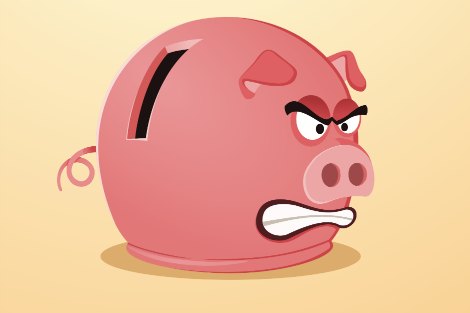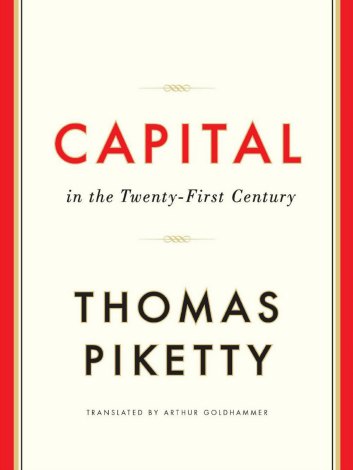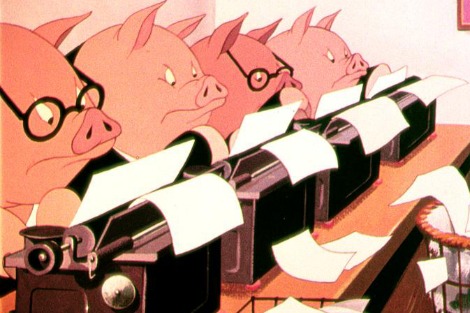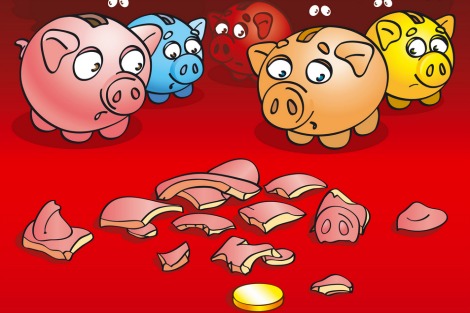Section: Economics
There are more than 200 results, only the first 200 are displayed here.
-

ECONOMICS
- Brian Toohey
- 10 October 2014
7 Comments
Suppressing information can actually damage national security. President Kennedy intervened to get the New York Times to withhold sensitive details from a report about the imminent invasion of Cuba by CIA sponsored exiles in April 1961. Times executives said Kennedy later told them, 'If you had printed more about the [CIA] operation, you would have saved us from a colossal mistake.'
READ MORE 
-

ECONOMICS
- David James
- 08 September 2014
7 Comments
What is only now starting to come into focus is the extent to which the whole economy is in hock to house prices. A sharp fall in the housing market will put intense pressure on our major lending institutions, leading to a deeply depressing effect on all parts of the economy. The regulators, as ever, are taking a hands-off approach.
READ MORE 
-

ECONOMICS
- David James
- 13 August 2014
1 Comment
In 1976 management thinker Peter Drucker said the real owners of the stock market were workers, through their pension funds. A similar broadening of ownership has occurred in Australia since the creation of compulsory superannuation. But intermediaries called fund managers still stood between the people and ultimate control of their financial destiny, until the rise of the Self Managed Super Fund (SMSF).
READ MORE 
-

ECONOMICS
As the Pope and economist Thomas Pikkety have observed in recent times, the inequity created by capitalism is a growing concern. But the problem with this argument is that 'capitalism' is too broad a term. The attack would be far better directed against the financialisation of developed economies. A new type of sovereign has emerged, and like all rulers they are cheerfully engaging in acts of plunder.
READ MORE 
-

ECONOMICS
- Brian Toohey
- 11 June 2014
15 Comments
The superannuation industry inhabits a cosseted world in which the money pours in thanks to a combination of government compulsion and tax concessions. The foundations of this empire are criticised for how the tax concessions create an expensive form of upper class welfare, and for the harmful effect of compulsory super's artificial expansion of the finance sector. The Abbott Government shows scant concern about either aspect.
READ MORE 
-

ECONOMICS
The 2014 Federal Budget has created a new hierarchy of virtue in Australian society, with well off investors deemed to be good and the disadvantaged bad. It is not so much class war as a war between capital and the rest of society. Those wielding significant capital are useful, while those who can save little, and have little to invest, are considered a burden.
READ MORE 
-

ECONOMICS
- Fatima Measham
- 07 May 2014
16 Comments
French economist Thomas Piketty argues that current conditions have set us on track for a return to 19th century-levels of inequality. The Commission of Audit proposals suggest that the auditors and the Government are keen to expedite this neo-Dickensian era. It's all done in the name of 'incentives' toward 'personal responsibility', but this cannot remain coherent in the face of those who will be hit hard by the proposed suite of cuts and co-payments.
READ MORE 
-

ECONOMICS
In politics, one should never opt for a balanced and thoughtful description of the truth when wild exaggerations will do. Especially when you want to take from the poor and give to, if not exactly the rich, at least the investor class. The dire pronouncements from the Abbott Government in response to the Commission of Audit's 86 recommendations reflect not only the PM's relentless negativity, but also more than a whiff of class war.
READ MORE 
-

ECONOMICS
- David James
- 26 March 2014
6 Comments
Removing the requirement that financial advisers act in the best interest of their clients will reveal financial advisers for what they really are: salespeople for the banks' wealth management platforms. Tony Abbott argues that the changes will remove 'red tape' and declaimed: 'We're creating the biggest bonfire of regulations in our country's history.' This is a duplicitous use of language that misunderstands how the finance sector works.
READ MORE 
-

ECONOMICS
- David James
- 12 March 2014
10 Comments
Economics is full of circular arguments. The Government is on the one hand arguing — most notably with the SPC Ardmona case, the exit of the car manufacturers and Qantas — that it will not get involved in supporting Australia's industry base. But then it argues that its policies will boost Australia's industry base. Lower unemployment will inevitably follow. For the first time ever it is apparently possible to have it both ways.
READ MORE 
-

ECONOMICS
- David James
- 07 February 2014
15 Comments
'All animals are equal, but some animals are more equal than others'. This was George Orwell's parody in Animal Farm of the vicious use of language in communist states. It was one of his memorable depictions of how the absurdities of language not only reflect evil, but also predicate it. Language was a tool of oppression in communist states. In capitalism it is no less vicious.
READ MORE 
-

ECONOMICS
- Bruce Duncan
- 04 February 2014
14 Comments
The budget problems are not caused by Newstart or disability pensions, which have been declining as a proportion of economic activity. Had the Howard Government not been so generous with its tax cuts to upper and middle income groups, there would today be no budget deficit.
READ MORE 